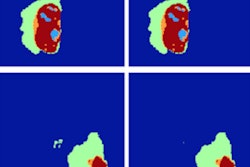The risk of death from heart disease in breast cancer patients following radiotherapy or chemotherapy is no higher than it is among the average population, according to a large study by German scientists. Good risk management in hospitals and control screenings at short intervals seem to make up for elevated risks, they added.
In a registry-based cohort study, the researchers looked at mortality data among nearly 350,000 breast cancer patients treated with radiotherapy or chemotherapy. The study team led by Janick Weberpals, a doctoral candidate at the German Cancer Research Center (DKFZ) in Heidelberg, found the risk is no greater than the average population (European Heart Journal, 9 April 2018).
The group evaluated data from 347,476 patients using U.S. cancer registries. They analyzed cases of women diagnosed with breast cancer in the years 2000 to 2011 and subsequently received treatment by radiotherapy or chemotherapy. Comparing the data of the patients with data on the female average population in the U.S., the researchers found the long-term risk of mortality from heart disease for breast cancer patients after treatment is not higher than in the average female population. This holds true for chemotherapy and radiation therapy. Special treatment methods for the subgroup of HER2-positive patients also are not associated with an increased risk of dying from heart disease, they found.
The effect may be due in part to good risk management in hospitals. Additionally, hospitals may be checking treatment at short intervals to test whether the heart is showing side effects, which allows for treatment adjustments.
"It is particularly good news for the large number of affected patients that if they are in good medical care and have survived breast cancer, they do not need to be more worried about deadly heart diseases than women at the same age without breast cancer," said principal investigator Dr. Hermann Brenner, also from DKFZ.





_20180817182650.png?auto=format%2Ccompress&fit=crop&h=167&q=70&w=250)













